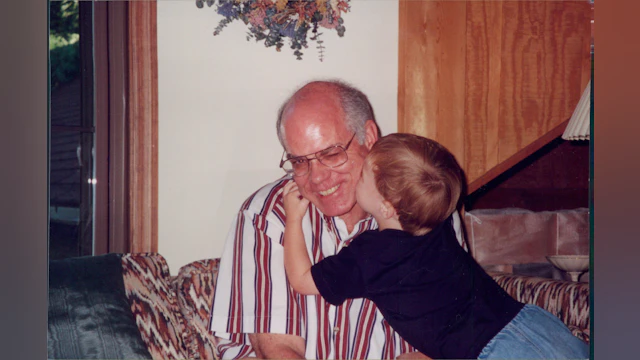On this Giving Tuesday, we hope you will consider donating to AFSP.
The beautiful Sunday evening in 2001 was supposed to strike a celebratory tone. My wife and I, along with our sons, ages four and two at the time, were about to embark on relocating back to our native Ohio to be closer to our extended family after 11 years of life in North Carolina. Instead, I received a phone call that would change my life forever. I was told that my father had just died by suicide. And thus the nightmare began.
The next several days, weeks and months are still a blur 15 years later. Of the things I can remember, those that stand out are how alone and abnormal I felt having lost a loved one to suicide and how the question “Why?” kept haunting me. Why had he done this? Why now? Why hadn’t the professionals who had treated him for his major depression been able to prevent it? Why didn’t I do or say something encouraging enough to keep him alive? Why did I know so little about mental health and suicide?
My journey back to a relatively stable life was long and arduous, filled with one step forward, two steps back type of moments. For the next three years I was in and out of therapy, fumbled through the guesswork of antidepressant medications and, in retrospect, relied way too heavily on alcohol to dull the pain. I was in a very dark place and felt like life could never be “normal” again. I suffered not only from severe depressive episodes but also from acute anxiety linked to my loss. As I explained to a local Cincinnati reporter in 2004, “I was frightened that there was a strong enough genetic link that I was destined for the same fate, and I didn’t want that to be. But it scared me to death that I wouldn’t have a choice in the end; that the mind would take me kicking and screaming.”
Having finally found some stability in the late summer of 2004, I turned to my wife during a church service and told her I was ready to do something positive with my tragedy. She suggested I begin to pray about that. In a direct answer to my prayers, my wife received an email later that same week from a preschool mom who was recruiting volunteers to help organize an Out of the Darkness Community Walk to benefit the American Foundation for Suicide Prevention (“AFSP”). This other mom had no prior knowledge of my loss. As complicated as it still is to this day, my “Why” questions were finally getting some answers.
The Out of the Darkness walks in which I have participated and the chapter system that AFSP has developed in recent years have provided me with the positive outlet I was looking for. From the very first event, the community walks have always been a place to share difficult stories with others, broaden public awareness and education, and find a true sense of hope. AFSP’s chapters now span all 50 states and are a substantial force in its advocacy efforts, the delivery system for its many great education and prevention programs, and the driving force behind its fundraising efforts to support scientific research.
Suicide is complicated. The answers to why one ultimately dies by suicide are multifaceted. They involve factors such as brain chemistry, socioeconomic conditions, means availability, and more. It will take years and tremendous collaboration from countless individuals and organizations to better understand these factors and ultimately prevent widespread death by suicide. (We lose over 40,000 Americans every year to it.) Nevertheless, I have been blessed to watch the work of AFSP expand and elevate over the past 15 years. The stigma of suicide and major mental health issues in society, while still present, is much less than it was during my dark period. We have greater public awareness of the fact that suicide is a leading cause of death; a better informed public on suicide prevention and the importance of preventive mental health services; and we are making scientific progress on identifying and mitigating suicide risk factors.
Suicide prevention efforts and the support of those who have lost someone to suicide should be national priorities. Suicide deserves a voice. AFSP is that voice. This is why I continue to pour my time, talent and treasures into this tremendous organization.
Steve Siple is a member of AFSP's National Board.
